This past weekend a 25-year-old swimmer was washed out to sea and is believed to have drowned. He was swimming in the ocean off Lumahai Beach on Kauai’s north shore. That beach is infamous for Kauai drownings.
Here is what is happening and why we want you to be careful in the ocean and on hiking trails.
Two swimmers in distress were spotted off of Laumahai at about 1 pm on Saturday. The other swimmer made it back safely while the visitor from New Jersey did not. Lifeguards, the fire department, and the US Coast Guard have been searching although efforts are now suspended. We haven’t heard yet if the two swimmers were related to each other.
Last week, there were two more hiker rescues on Kauai, one of which was deadly.
In one incident, a 59-year-old Illinois hiker on the Sleeping Giant (Nounou) east trail died. He was found on the trail and transported to the hospital where he was pronounced dead. That trail is not as easy as you might think and you should be in good physical condition before attempting the hike.
On the same day, a 56-year old visitor was rescued on the north shore’s Kalalau trail, due to injuring her ankle. She was air rescued and transported to the hospital for treatment. It’s a good reminder to stay focused on any hiking trail. We’ve been distracted twice. Back in April, Rob fell flat on his face on a trail when he tripped on a limb. And a few years later, Jeff had his head down on a trail and ran into a large limb extended over the path.
Just a week earlier, there were three additional rescues in one day.
On February 23, an unidentified 30-year old woman was airlifted from Kalalau Beach due to a back injury. She was transported from Princeville airport to the hospital. Also last month, a California hiker, age 56 was rescued from the Kalalau Trail. In addition, a hiker from Utah, age 53, was rescued following a rope swing jump near Kapaa.
Shortly thereafter, a rescue was initiated for a visitor from Massachusetts who was at Larson’s Beach on Kauai’s eastside. Boat, ground, and air rescue were dispatched. The woman, however, declined medical treatment after all the services that were used to rescue her.
And, on the same day, a 69-year-old woman from Minnesota was rescued at Waipoo Falls in Kokee State Park. The visitor was airlifted then transported to the hospital and was suffering from dehydration. This trail is uber-popular and we hike it regularly. Again, be in good condition and bring water.
In January, three people were rescued at Queen’s Bath, in Princeville | See rescue video.
Those, however, were Kauai teenage residents who managed to go around a locked gate. An air rescue helicopter was called in and rescued the three using nets. After landing on a nearby golf course they were transported to the hospital. Kauai’s Fire Chief said “Many people continue to bypass the gate. We urge the public that entry in these hazardous conditions can result in injuries or drownings and puts the lives of the public and our first responders at risk.”
And, on that same day, a male visitor, aged 45, from Austria, was air rescued off the North Shore of Kauai and the Kalalau trail. That visitor declined treatment after the helicopter lift to Princeville Airport.
And it goes on from there. In addition to the plethora of ground and water-based rescues, there have been at least 10 air rescues so far this year on Kauai. Last year there were 63 in total.
More recent deadly incidents.
Last fall, a 60-year-old visitor from New York died while snorkeling on Kauai. Rescuers responded to an unresponsive person in the water at Pali Ke Kua Beach after others attempted resuscitation. The visitor later died.
Also last fall, Beat of Hawaii editors attended the celebration of life for Kauai resident Tommy Horcher. In July 2021, Tommy rescued two swimmers in distress but tragically drowned after that. The rescued swimmers were in the water near Wailua Golf Course when they were overcome by rough ocean conditions and could not return to shore. Tommy saw the incident and was able to save the lives of the two swimmers. He, however, died from drowning, age 36.
Search and rescue bill in Hawaii.
We wrote last summer about Hawaii hiking incidents and the proposed search and rescue bill, which was deferred to this year by the Hawaii State Legislature. That article stirred interesting comments about search and rescue. It also brought to mind how visitor-centric places other than Hawaii are handling these extremely costly incidents. Our research indicates that air rescues such as the multitude of those performed recently could cost the state up to $47k each.
States, including Hawaii, are moving to enforce reimbursement for search and rescue under many circumstances, such as those listed below. Some version of bills that were heard in the legislature last year is likely to pass.
Bottom-Line: Know Your Limits.
The ocean is more powerful than you realize. Treat it with respect by reading warning signs, staying close to shore when you swim or snorkel, and asking advice from a lifeguard if you’re not sure about conditions. And when there isn’t a lifeguard, even more vigilance is indicated. On hiking trails, read the difficulty level and then make an honest assessment of your current physical health. When you hike, wear appropriate shoes or boots, bring water, and turn back if the trail is more than you can do. Stay safe, so you can have a fabulous Hawaii vacation and return again.
Comments from readers:
Michele: It’s essential these costs are presented to those rescued. Particularly the ones who refuse medical services on arrival. Do they think this is a taxi service?!
Paula: As a traveler, I… travel often to Colorado, where we have purchased their 5-year Colorado Outdoor Recreation Search and Rescue (CORSAR) Card. Arizona is also a significant tourist destination, with dangerous climate and geological features for the unaware, so such rescues often happen. We are conservative and do our best to be well informed of local dangers and considerations, but we are also older, and you never know. Such a program seems well within reason, especially for communities with limited resources compared to the high demands of tourism.
Teresa: Who pays for these costly rescues? Do the folks being rescued have to pay anything??
States that already charge those who “negligently” require search and rescue.
At least six other states also have such plans for search and rescue to require reimbursement. New Hampshire is one, which started it years ago (2008). The laws vary, with some narrowly defined and others not so regarding what qualifies for seeking reimbursement.
In at least one case, who was responsible went all the way to the New Hampshire state supreme court in 2015, which ultimately ruled against the hiker. That person is said to have acted negligently when he went on a five-day one-person hike with an artificial hip that had suffered multiple prior dislocations.
National Park Service said, “When you have to decide in an emergency, you don’t want to be hamstrung with economics; you want to make the right decisions for the right reasons.” It is noteworthy that, at present, federal agencies typically do not seek reimbursement.
Search and Rescue card programs.
Programs exist to help both the destination and the visitor. The hikers pay for them and, in exchange, don’t have to worry about paying should search and rescue be required. While not exactly insurance, these funds help offset the soaring costs of search and rescue.
Colorado has their CORSAR card. “CORSAR cards are available for $3 for a 1-year card and $12 for a 5-year card. The CORSAR card is not insurance and does not reimburse individuals or pay for medical transport.”
“An ambulance, whether air or ground performing ambulance functions solely, is considered medical transport, and expenses for this are not eligible for reimbursement by the SAR Fund.”
The program has been in effect since 2002 and has paid out millions for search and rescue missions.
Utah has the USARA program, where individual cards cost $25 per year.
Hawaii search and rescue plans were deferred to this year’s legislature.
Two bills to allow or require reimbursement for Hawaii search and rescue expenses were deferred last year. Some version is likely to pass eventually. One bill would require reimbursement from persons who bypass appropriate signage or other notice and hike off of marked trails, on closed trails, or enter private, county, or state property. The other bill is more general and seeks reimbursement from those acting without regard to safety.
The state Department of Land and Natural Resources said at the hearing on SB700, that it sought to “incentivize the general public to stay within authorized managed areas.” That bill is designed to seek reimbursement when someone enters where access is prohibited, such as Queen’s Bath.
SB 363, on the other hand, seeks to require “government entities that engage in search and rescue (SAR) operations to seek reimbursement when the rescued person required SAR efforts because that person acted in disregard of that person’s safety, including intentionally disregarding a warning or notice. That bill was referred to committee and has not yet been acted on.
Hawaii currently has no means to seek reimbursement for any of these incidents, so a plan to create an administrative system would also be needed.
Please add your thoughts on Hawaii search and rescue and how the state should address it.
Updated 3/7/22.
Get Breaking Hawaii Travel News
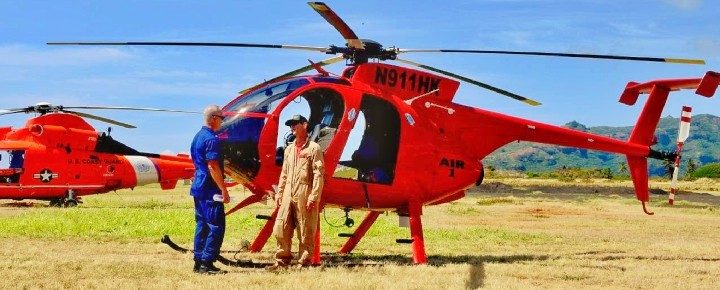
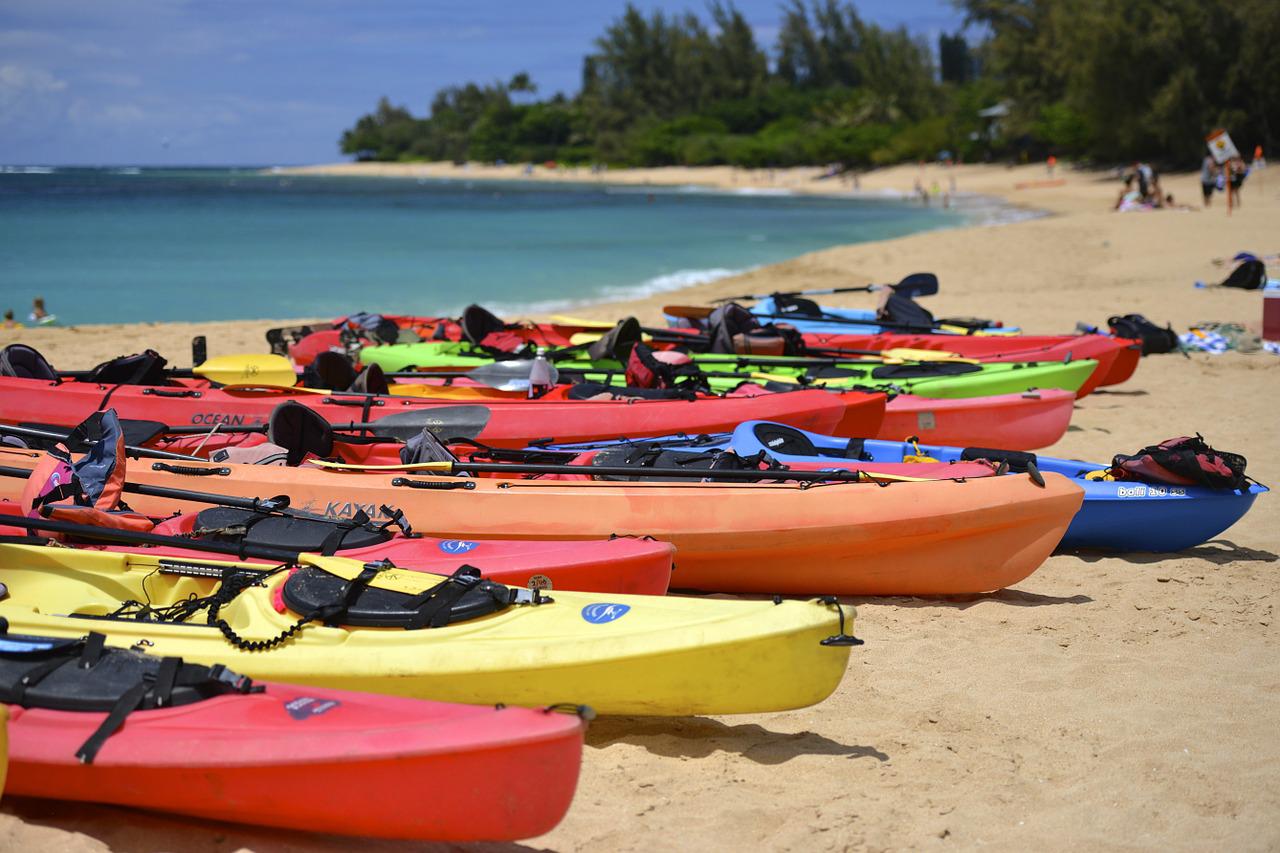
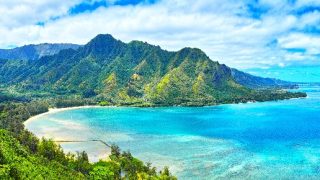
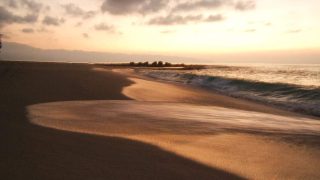
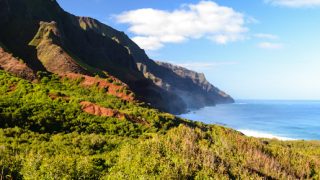
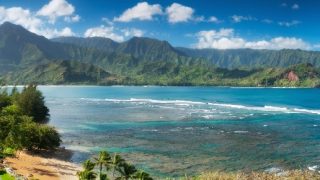
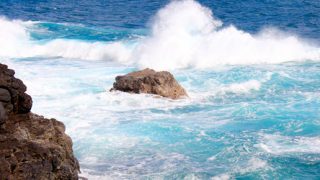
I am curious, the people specifically that refused further medical attention, was it their decision to call for help? Or a bystander? In which case the injured person couldn’t really be charged for the rescue of they didn’t request it.
It would seem to me that if you are interested in some kind of physical activity. You best be the kind of person who is in some kind of physical shape. Maybe the gym or running. Just walking off the airplane and doing something physical could be trouble.
It appears those (of us) in their 50’s still think they (we) can still do what we did in our 20’s and 30’s?! Common sense is no longer common.
Some of us CAN do things some 20s and 30s can’t, but I see your point. Nobody is invincible.
Aloha Rob and Jeff, I am here and saw the search for the swimmer swept out to sea at Lumahai. Waves were peaking at Haena at 20 ft Sat and Sun.Was at Hanalei and it was an all day search. I can’t stress enough for visitors to follow all warnings. What a tragedy for his family and friends and the rescue people as well. Please vacation wisely and with great caution. You never know with nature what can happen. Mahalo!!
if it is posted no trust past ,or you climb over fences ,or thru a chain fence,and ignore warning signs. and have to be rescued you should be charged and you should be find for breaking the law .it’s your negligence and selfishness that got you in that position so yes pay up…no matter local, visitors or tourists……
If you ignore warning signs on beaches or the life guards warning or weather warnings yes you should be charged and pay to be rescued ..people have died rescuing others Mahalo
Tommy would go.
Aloha! My husband personally rescued 2 different swimmers on 2 separate days off Kaanapali Beach this past January…very strong under currents pulling you out to sea. The fist incidence I was in deeper water near shore holding onto my 6’4″ hubby-we heard a very faint “help me” female…he went out & I swam to shore with great effort, as I was being pulled back out- ugh! Hubby had wished he went to shore for a board first- met too!!! Guys with board/flipper helped as I alerted shore peeps…
2nd time; guy on a board yells “Help me! Get a Lifeguard!” We yell “swim with the current parallel to shore, there are no lifeguards here”-again my hubby swam to him, this time knowing he had a board to use-everything happens so fast, you kind of just react-discussing with my hubby we decided to always grab a board and/or fins first as we (me) goes for help-the 1st incident above was honestly more risky as I struggled & looked back to see them drifting deeper out praying she would not drown him
More tourists equals more stupid behavior.
Absolutely these people should be charged. Especially when they disobey the warning signs.
Locals pay taxes and services should be provided as such…unless they are trespassing as well.
Chris, I agree that many visitors do not pack their brains when tbey come on vacation but there ate many local and Malahini teens who act equally stupidly. If people ignore warnings or avoid locked gates or fencing they should pay for any costs incurred rescuing them. Whether they live in the Islands or Visit. I like the idea of an insurance card to be required.
Aloha, sad that the taxpayers generally foot the bill for people who refuse to understand their limitations, those who refuse to understand nature and those who refuse to understand the law for their safety. I’m a firm believer in Natural Selection and these people should be paying for their lack of caring about themselves or others who risk their lives to “save” them.
Mahalo.
I find it hard to believe the average air rescue cost 47k each. Are the rescuers being called in on overtime or working there scheduled shifts? Are they counting the cost of owning or lease and maintaining the equipment that they need to have regardless? If obviously cost additional money making these rescues, but Kauai should be honest and not inflate the real numbers in order to enact new laws and taxes.
My parents lived near slippery falls in Kauai. It is closed now and signs of no trespassing due to too many tourists destroying the Falls. It is dangerous however no one respects the signs and many trespass. I believe Kauai needs to enforce a hefty fine for trespassing to save lives and people will think twice before endangering their lives. Tourists believe they can do whateva they want without repercussions. I never got to enjoy slippery Falls due to the no trespassing signs.
Blocking off access to Ke’e created a daily crowd at “Lumahai local” where the stream dumps into the ocean. There are no lifeguards and the ocean is treacherous. Nickname is Luma-die for a reason.
I used to day hike to Kalalau. Exactly 10 miles one-way from Ke’e to Kalalau stream. I called it “the pounder” – pounds your knees and takes 3500 calories. Pay attention to your footing every step; come to complete stop before staring at ocean. Between mile 7-8 markers are the most awesome views.
I think you are totally right about charging people. My son is a fireman and I can’t tell you how many dangerous swift water rescue or other rescue calls he has to go on because of peoples stupidity. Especially when there are hurricanes and people don’t want to leave their homes. Again! Puts my don and other first responders at risk.
Please note the 3 teenagers were local. Also, what happens when someone from Hawaii needs help on the mainland, should we start charging Hawaiians a special fee to rescue or help them. It seems Hawaiians expect mainlanders to pay for everything, but it should go both ways. If you break the law, then it’s a different story, you should pay for the costs, locals and mainlanders.
Our own tax dollars need to provide for residents. Those being rescued need to pay. My husband was injured at work here in HI, a 7-minute ambulance ride to Queens, and the bill we got was 10K *for the ride/services* (before anything else.) Tourists need to heed what they are doing and where they are going. Make better choices, perhaps. Then reimburse the state for rescue efforts provided if needed. We are not a bank account.
Just wondering why your husband, who was injured while working, wasn’t covered by Workmen’s Comp? $10,000 sounds awfully extreme for an ambulance ride, average cost is around $1,200 unless you’re talking air rescue. I agree medical costs are egregious, but again just wondering.
Medical emergencies can happen anywhere to anyone.Those who are otherwise following the rules and warning signs should not be charged for rescue. However, those who suffer injuries or need to be rescued due to not obeying the warning signs should most definitely be charged. Risking your own life, that is one thing, but many of these rescues put the responders in harms way and that is inexcusable. Fines should be posted on the warning signs and perhaps (some) people would make better choices.
Agree completely!! If you don’t adhere to the signs then you should be billed. I live in Arizona and we have the same issue with hikers and drivers who try to drive through flooded washes, creeks etc and then say “I thought I could make it”, called the idiot tax/bill.
For comparison: Search and Rescue teams in my home province of BC in Canada never charge for rescue. They promote this fact so that nobody hesitates calling 911 when needing rescue because of being afraid of a large bill. “We do not charge for rescues”. Well, I understand the U.S. of A. is different…
Context is important to not ignore when comparing different countries’ search and rescue policies. BC doesn’t have the same environmental, political, and economical factors as Hawaii, amongst other things. Although I understand not wanting to discourage people from getting help, from my experience many people travel to Hawaii and don’t believe anything will happen to them, then proceed to ignore all signs, warnings, and advice.
People who flagrantly ignore safety signs, jump fences, trespass should be fully responsible, which includes paying, for their illegal actions. Going to a lifeguarded beach and having a lifeguard help you out of a situation is completely different from the many, many people I have seen at Wailua falls who climb through the tall fence directly in front of “do not trespass” “hazardous” signs. They look at the signs and continue, thinking only of their good time. SHouldn’t those people be responsible? Would they be responsible in your own home town? Fair is Fair. What happens here on Kauai is these internet travel blogs love to describe the adventure and beauty of a particular spot but they fail to mention the warning signs or cultural norms that prohibit certain behaviors. That doesn’t sell well and does not make their blogs rank. Money talks.
Maybe we should be asking where all those exorbitant fees are going and why they’re so high. Pay the SAR salaries, fuel, helicopter maintenance etc yes… but 47K??? Sounds like some corruption going on there. ??
Even talking about trying to charge the tourists for search and rescue is just retarded and petty. Tourism generates about $2,000,000,000 for the state of Hawaii in a normal year. (Yes, that’s $2B with a B.) So… what’s a few million here and there for this type of thing? It’s a drop in the bucket. Unfortunately, people seem to be getting stupider and stupider. And that doesn’t just apply to the tourists. But if we are going to charge the group that generates the largest segment of our tax revenue for search and rescue… I guess we’ll have to start sending a bill to everyone in the state of Hawaii that comes into contact with law enforcement, EMT’s, Fire Departments, DLNR officers, etc, etc, etc–including the locals. Right? What’s fair is fair.
And with all of the drownings that occur in Hawaii every year… I guess we should start talking about shutting down all of the beach parks permanently–and banning all swimming in the ocean. I mean, if we’re going to shut down tourism for a few COVID deaths… it’s only right that we shut down the beach parks to save all of those people from drowning every year. You know… the sanctity of human life and all that jazz.
It’s starting to sound like it would be very much preferable if I just sent a bunch of money and stayed home. I guess I can get behind the staying home part.
As someone who has always been a monkey and exploring off the beaten path it is paramount to respect nature and not be a jackass.
I often see people who think because I did something they can also and often get stuck or have to turn back due to the difficulties of the land.
The issue is if you charge people to be rescued there will be those who refuse or simply won’t call for help because they cannot financially afford to.
The question is then if they die or get into worse situation the state will definitely suffer and it just feels a bit inhumane but of course our healthcare is built on a for profit system so it’s not totally out there.
I just don’t think that will actually solve the problem just add more obstacles or nuances to saving lives.
I also feel it’s taking advantage of someone who has suffered, self imposed or not.
Perhaps the senate could allocate more money to search and rescue instead of giving it to the rich. I mean we did spend 14 Trillion in the last 20 years just in war. We can afford to do all the things to keep the citizens safe and happy. 🤷🏽♂️
I appreciate Yury’s comment on the Vancouver SAR policy. Maybe a distinction to draw is whether someone needed rescue from somewhere they were allowed to be or they needed rescue from somewhere they shouldn’t be. I believe you will get charged if you need rescue skiing in Vermont IF you are off trail. In my mind there’s a big difference between needing rescue from an open trail to needing rescue from a posted/private/bushwhack trail. It is a trickier call when you’re in the water, unless a beach is actually closed. Lots of people don’t understand that it isn’t Disney World, it is a big, sometimes unruly ocean, and you should give at least a passing thought to your limits before you swim out 100 yards from shore or play in the waves pounding the beach.
Please charge those rescued. Those of us who are paying taxes here, and who do not go off and do stupid things requiring rescue ourselves, would rather have our tax dollars spent on things that benefit local residents. Our schools, our roads, our lives, etc.
Hawaii…..where all good ideas go to die….including much needed
“Search and Rescue Insurance”.
Maybe private rescue firms will become the norm rather than local fire departments. Then, if someone needs help, they can call around to get a few quotes and find the best price for getting saved.
Wouldn’t a large fine for violating no trespass signs posted at dangerous places be simpler?
Between the special fees on visitors, and the ever increasing accomodations taxes, seems like some life saving rescue could be included at no additional at charge.
Thank you for the updates.
Hi Skip.
Thanks. We appreciate all of your input over the past few years.
Aloha.
Aloha Skip.
Regarding your statement, “seems like some life-saving rescue could be included at no additional at charge.” Why? Why should the residents of Hawaii pay for a visitor’s negligence? This isn’t Disneyland where they can stop the ride so you can get off. People die or get badly hurt because of wrong decisions! Also, it’s not “free drink with purchase”. We’re talking thousands of dollars here for SAR to be called out and that is absorbed by us. Why should we foot that bill? Respect the land, follow our mandates, and don’t use our SAR as an Uber. Mahalo.
Because it’s not only visitors that are being rescued
Aloha BOH! I don’t have a suggestion to resolve this issue, I just want to express my opinion that the citizens of Hawaii should not have to bear the cost for rescuing anyone (tourist or resident) who disregards warning signs or who willfully puts themselves in danger. But if it is absolutely clear that it was the trespasser’s fault, they should have to pay the cost of their rescue. Mahalo for letting me comment.
Hi Debi.
Thank you for your comment on this issue and your nearly 50 other comments. We appreciate it.
Aloha.
I think it is a great idea. It’s not that expensive to get 30 day emergency coverage. The coverage I get generally covers a med vac. I am not sure if it covers emergency rescue crews. That might have to be covered by charging for permits on trails in Hawai’i. Hiking the West Coast Trail on Vancouver Island in Canada is roughly $200 bucks and it is highly recommended that you get emergency insurance or you have to pay for the rescue if you are rescued by a helicopter. If you are rescued by boat that is included in the hiking permit. We were rescued by boat (my friend fell and broke her humerus) so we all decided to go with her because of logistics. She was fine just so you all know. The Canadian Parcs are very well trained and very professional. I think US Park Ranger’s could take some lessons. Hawai’i definitely should charge for some of the more treacherous hikes like those on Kauai.
I agree, Theresa, and with Sheryl B’s comment, also. Hawai’i’s taxpayers should not have to pay for the deliberately dangerous behavior of anyone, local or tourist. Hiking permits are a great idea!
In Oregon, we have many tourists who come here to climb Mt. Hood and choose not to use the free beacons or follow other safety measures, like checking the weather or being prepared for a drastic change in the weather. When they get lost or trapped due to their negligent behavior, the search and rescue folks are there within an hour in most cases. Sometimes the weather is too dangerous for the rescue helicopters to fly, as in whiteout conditions or extreme winds. There have been incidents when rescuers have been killed trying to save lives. One to two people die on Mt. Hood every year.
Of course, there are people who are experienced hikers and skiers who are doing all the right things are injured or are the victims of an avalanche. Those are true accidents.
The bozos who come here not knowing anything about Mt. Hood and try to climb up unprepared, then get lost and want a free ride down, are the ones who need to pay for the transportation. Charging them for that has been discussed.
Hawai’i is in a good place to make that decision and I hope they do, sooner than later. It seems that people are getting dumber about following rules.
Just for perspective, here’s the positing of my local SAR team in Vancouver, Canada:
“We do not support charging for rescues primarily due to the risk of a lost or injured person or their family/friends delaying a call for help. Through over 50 years of Search and Rescue work on the north shore, we have seen many calls where family have been under the impression that they would be charged, and delayed their calls for help. Another situation we have run into is a subject being under the impression they would be charged, and avoiding rescuers (trying to follow them out). There are significant risks and costs which can be associated with this.
The subject may be put at greater risk (eg. the delay itself, prolonged exposure to the elements, less likely to be found, etc.)
The rescuers may be put at greater risk (more exposure, more area to cover (time distance traveled considerations), air support may be unavailable due to delay, etc)
A prolonged search increases costs to taxpayers and volunteers exponentially
NSR is proud to be able to provide search and rescue at NO cost and have NO plans to charge in the future.”
This is a great idea, and long overdue. The taxpayers of Hawai’i shouldn’t have to be financially responsible for the consequences of reckless or illegal behavior of residents or tourists.
Aloha,
Something like those cards sounds like a really good idea. It could be sold through the GoHawaii website, maybe at a kiosk at the airport and through travel agents and hotels.
Just way past time for this to take place. There is no way that the responders should not be compensated for those that take unnecessary risk, especially by being unprepared for where they are attempting to go. Just do it already.
This would not have applied to the two hikers mentioned above. If rumor is true, they just wanted a “ride” out and really weren’t injured. There was another recent rescue where a woman was hit by a wave and she hit her head and is hospitalized. So should she be charged because she went into the ocean that can be dangerous at times? On Kauai there is really no way to rescue hikers other than air. Now should a hiker be charged for injuring themselves while off trails that are marked as off limits? Sure. Should people rescued be required to go to a hospital to be checked out? Yes! This reminds me of the story currently active on Kauai with the lost hiker. He was hiking by himself. Will that soon be illegal. Thanks.
This is an interesting problem because there is no way of knowing who is going to decide to do something incredibly stupid or who may have an unforeseeable medical emergency, be it tourists or locals. Bottom line is it is unfair for the state and the taxpayers to have to pick up the tab regardless. Hikers should register prior to hiking but not I am sure not everyone does so charging hikers a fee probably won’t work, and trying to collect after the fact would be extremely difficult. I am not a fan of more fees for tourists but if the state were to require the airlines to charge 50 cents per traveler that would go to the state for search and rescue costs, it would hardly be noticeable to the traveler but would be a win for the state. We saw kids diving in to a blow hole at South Point on the BI and timing their dive with the waves. Those are the kind of idiotic things that could require someone else to risk their life to save someone who just did something really stupid. The residents of the state should not be responsible for that. I say try to recoup the cost from the one at fault, but have the rescue fund should they decide not to pay.
Aloha Sheryl,
This is actually not a “blowhole” this is a cave from an old lava tube, that happens to have a surface opening, at the top of the cliffs. It’s likely been there for hundreds, if not thousands of years.
I understand from some people that have jumped (mostly locals that know the area and ocean conditions well), it is fairly deep and easy to swim, if conditions are favorable. There is a ladder just outside the cave that people climb right back out from. Not sure how many people have ever been injured from jumping there, but probably not near as many as those who just jump off the cliff, which tourists are more likely to do, since (again) there is a ladder right there to climb back up on.
One transplanted local who has lived there for several years told me that he has never been hurt jumping into the hole, and has never touched the bottom. He also told me that he dislocated his shoulder once by landing wrong, as he slipped off the platform where the rope pully is. I have seen several people jump, including kids, and never seen anyone get hurt, but I am sure it’s happened at some point.
I definitely agree this not smart, however. I wouldn’t even jump off the cliffs there, let alone jump into that hole! lol
Aloha, I see people constantly going through the fence surrounding Wailua Falls here on Kauai. The signs saying danger and do not trespass are right in front of their faces. Not only are they trespassing they are leaving their cars parked all day and the people coming to legally view the falls have nowhere to park.
Many things have crossed my mind about this, but the bottom line is who pays. Is the thinking different for local or visitor? If my snorkel boat sinks on the way to Ni’ihau and the Coast Guard comes, am I billed; so is there a difference if the rescue comes from my negligence or the state’s or a private party? Crazy, I have never thought about the liability and/or exposure to the expenses in search and rescue.
Can you take a boat to Ni’ihau?
That is exactly the point, a lot of people don’t think until it is too late. But someone has to be ready to perform rescues and that costs a lot of money.